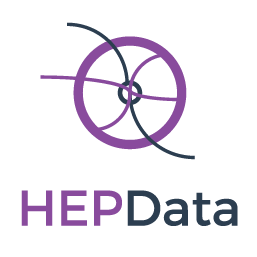# -*- coding: utf-8 -*-
#
# This file is part of HEPData.
# Copyright (C) 2016 CERN.
#
# HEPData is free software; you can redistribute it
# and/or modify it under the terms of the GNU General Public License as
# published by the Free Software Foundation; either version 2 of the
# License, or (at your option) any later version.
#
# HEPData is distributed in the hope that it will be
# useful, but WITHOUT ANY WARRANTY; without even the implied warranty of
# MERCHANTABILITY or FITNESS FOR A PARTICULAR PURPOSE. See the GNU
# General Public License for more details.
#
# You should have received a copy of the GNU General Public License
# along with HEPData; if not, write to the
# Free Software Foundation, Inc., 59 Temple Place, Suite 330, Boston,
# MA 02111-1307, USA.
#
# In applying this license, CERN does not
# waive the privileges and immunities granted to it by virtue of its status
# as an Intergovernmental Organization or submit itself to any jurisdiction.
from invenio_db import db
from invenio_pidstore.errors import PIDDoesNotExistError
from invenio_pidstore.resolver import Resolver
from invenio_records.api import Record
import os
from sqlalchemy.orm.exc import NoResultFound
from hepdata.config import CFG_PUB_TYPE
from hepdata.ext.elasticsearch.api import get_record
from hepdata.modules.submission.models import HEPSubmission, License
FILE_TYPES = {
"py": "Python",
"c": "C",
"cpp": "C++",
"cxx": "C++",
"cc": "C++",
"C": "C++",
"sh": "Bash Shell",
"pl": "Perl",
"cs": "C# Source Code",
"java": "Java",
"root": "ROOT",
"json": "JSON",
"yaml": "YAML",
"txt": "Text",
"rtf": "Text",
"xls": "Excel",
"xlsx": "Excel",
"slha": "SUSY Les Houches Accord",
"f": "Fortran"
}
IMAGE_TYPES = [
"png",
"jpeg",
"jpg",
"tiff",
"gif"
]
URL_PATTERNS = [
"github",
"bitbucket",
"rivet",
"zenodo",
"sourceforge",
]
ALLOWED_EXTENSIONS = ('.zip', '.tar', '.tar.gz', '.tgz', '.oldhepdata', '.yaml', '.yaml.gz')
[docs]def contains_accepted_url(file):
for pattern in URL_PATTERNS:
if pattern in file:
return True, pattern
return False, None
[docs]def allowed_file(filename):
return filename.endswith(ALLOWED_EXTENSIONS)
[docs]def is_image(filename):
if '.' in filename:
extension = filename.rsplit(".", 1)[1]
return extension.lower() in IMAGE_TYPES
return False
[docs]def infer_file_type(file):
if "." in file:
result, pattern = contains_accepted_url(file)
if result:
return pattern
else:
extension = file.rsplit(".", 1)[1]
if extension in FILE_TYPES:
return FILE_TYPES[extension]
else:
return extension
else:
return "resource"
[docs]def get_or_create(session, model, **kwargs):
instance = session.query(model).filter_by(**kwargs).first()
if instance:
return instance
else:
instance = model(**kwargs)
session.add(instance)
session.commit()
return instance
[docs]def remove_file_extension(filename):
if "." in filename:
return filename.rsplit('.', 1)[0]
else:
return filename
[docs]def encode_string(string, type="utf-8"):
try:
return string.encode(type, errors='replace')
except AttributeError:
return string
[docs]def decode_string(string, type="utf-8"):
try:
return string.decode(type, errors='replace')
except AttributeError:
return string
except UnicodeEncodeError:
return string
[docs]def get_license(license_obj):
dict = {}
for field in ["name", "url", "description"]:
dict[field] = ""
if field in license_obj:
dict[field] = license_obj[field]
return get_or_create(
db.session, License, name=dict['name'],
url=dict['url'], description=dict['description'])
[docs]def find_file_in_directory(directory, file_predicate):
"""
Finds a file in a directory. Useful for say when the submission.yaml file
is not at the top level of the unzipped archive but one or more levels
below.
:param directory:
:param file_predicate: a lambda that checks if it's the file you're looking for
:return:
"""
for root, dirs, files in os.walk(directory):
for filename in files:
if file_predicate(filename):
return root, os.path.join(root, filename)
return None
[docs]def default_time(obj):
"""Default JSON serializer."""
import datetime
fmt = '%Y-%m-%d %H:%M:%S %Z'
if isinstance(obj, datetime.datetime):
return obj.strftime(fmt)
return obj
[docs]def truncate_string(string, words):
all_words = string.split()
truncated_string = ' '.join(all_words[:words])
if len(all_words) > words:
truncated_string += '...'
return truncated_string
[docs]def get_record_contents(recid, status=None):
"""
Tries to get record from Elasticsearch first. Failing that, it tries from the database.
:param recid: Record ID to get.
:param status: Status of submission. If provided and not 'finished', will not check elasticsearch first.
:return: a dictionary containing the record contents if the recid exists, None otherwise.
"""
record = None
if status is None or status == 'finished':
record = get_record(recid)
if record is None:
try:
record = get_record_by_id(recid)
except PIDDoesNotExistError:
return None
return record
[docs]def get_record_by_id(recid):
try:
resolver = Resolver(pid_type='recid', object_type='rec', getter=Record.get_record)
pid, record = resolver.resolve(recid)
return record
except NoResultFound:
print('No record found for recid {}'.format(recid))
return None
except PIDDoesNotExistError:
print('The PID {0} does not exist'.format(recid))
return None
[docs]def record_exists(*args, **kwargs):
count = HEPSubmission.query.filter_by(**kwargs).count()
return count > 0

